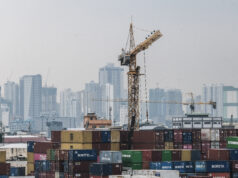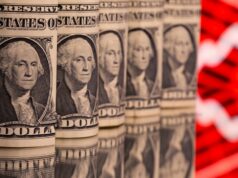Views mount on steady policy despite inflation
THE DEPARTMENT of Finance (DoF) and ING Bank yesterday added to expectations of faster inflation in September, whose data is scheduled to be reported today.
In an economic bulletin, the DoF said it estimates headline inflation to have clocked 3.4% last month as storms drove up food prices, as well as more costly fuel.
That would compare to the year-ago 2.3% and August’s 3.1%, and would be the fastest pace in five months.
It also compares to the central bank’s 2.8-3.6% estimate for September and the 3.2% median in BusinessWorld’s poll.
“Weather disturbances caused price increases in food items, especially vegetables,” Finance Undersecretary Gil S. Beltran said in the bulletin, adding: “Fuel price hikes and power rate increases contributed the increase in the non-food commodity group.”
Mr. Beltran also said “the apparent acceleration in the general price level is largely due to base effects, boosted by fuel prices.”
While he did not comment on possible movements of monetary policy that is the central bank’s turf, Mr. Beltran noted that “headline inflation is still within manageable levels, just slightly above the midpoint of this year’s target range” of 2-4%.
For ING Bank N.V. Manila senior economist Jose Mario I. Cuyegkeng, a “modest” September inflation pickup should enable the Bangko Sentral ng Pilipinas (BSP) to keep policy steady till yearend despite concerns that the economy could be overheating.
“With economic activity [growth] seen at 6.5% in 3Q and for the whole of 2017, the modest rise of inflation argues for steady monetary policy settings,” Mr. Cuyegkeng said in a market report.
“BSP monetary policy is likely to remain steady with September inflation inching higher.”
The Monetary Board maintained its policy stance in its Sept. 22 review.
“Lowering the risk of overheating may need some preemptive tightening” but Mr. Cuyegkeng said that “[a]rguing for such is difficult given that inflation forecasts for September indicate only a moderate rise.”
He added that “there is a strong chance that inflation would accelerate to an average of 3.5% in 2018” that has a 2-4% BSP target. — Melissa Luz T. Lopez and Elijah Joseph C. Tubayan



